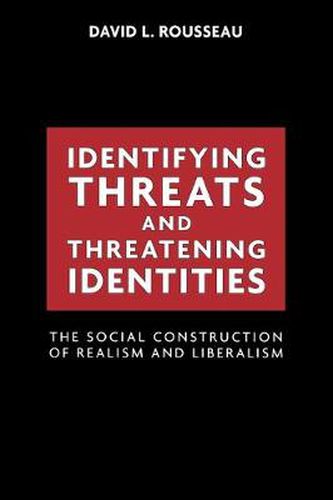Readings Newsletter
Become a Readings Member to make your shopping experience even easier.
Sign in or sign up for free!
You’re not far away from qualifying for FREE standard shipping within Australia
You’ve qualified for FREE standard shipping within Australia
The cart is loading…






How does a state determine if another state is an important military or economic threat? The issue of threat perception drives a wide variety of behaviors, from allegiance formation and defense spending to trade relations and regime membership. While liberal theorists and realists both agree that threat perception is a cornerstone of international relations, there is widespread disagreement on the factors that contribute to our fear of other states. In particular, the field is deeply divided between those who believe material factors such as the balance of military power determine the perception of threat and those who believe ideational factors such as shared democratic value determine the perception of threat.
Using a variety of social scientific methods of investigation ranging from laboratory experiments and public opinion surveys to computer simulations and case studies, Rousseau challenges these conventional arguments and sheds new light on this debate. He presents a model of identity formation that can explain when ideas will (and will not) have a decisive impact on threat perception.
$9.00 standard shipping within Australia
FREE standard shipping within Australia for orders over $100.00
Express & International shipping calculated at checkout
How does a state determine if another state is an important military or economic threat? The issue of threat perception drives a wide variety of behaviors, from allegiance formation and defense spending to trade relations and regime membership. While liberal theorists and realists both agree that threat perception is a cornerstone of international relations, there is widespread disagreement on the factors that contribute to our fear of other states. In particular, the field is deeply divided between those who believe material factors such as the balance of military power determine the perception of threat and those who believe ideational factors such as shared democratic value determine the perception of threat.
Using a variety of social scientific methods of investigation ranging from laboratory experiments and public opinion surveys to computer simulations and case studies, Rousseau challenges these conventional arguments and sheds new light on this debate. He presents a model of identity formation that can explain when ideas will (and will not) have a decisive impact on threat perception.